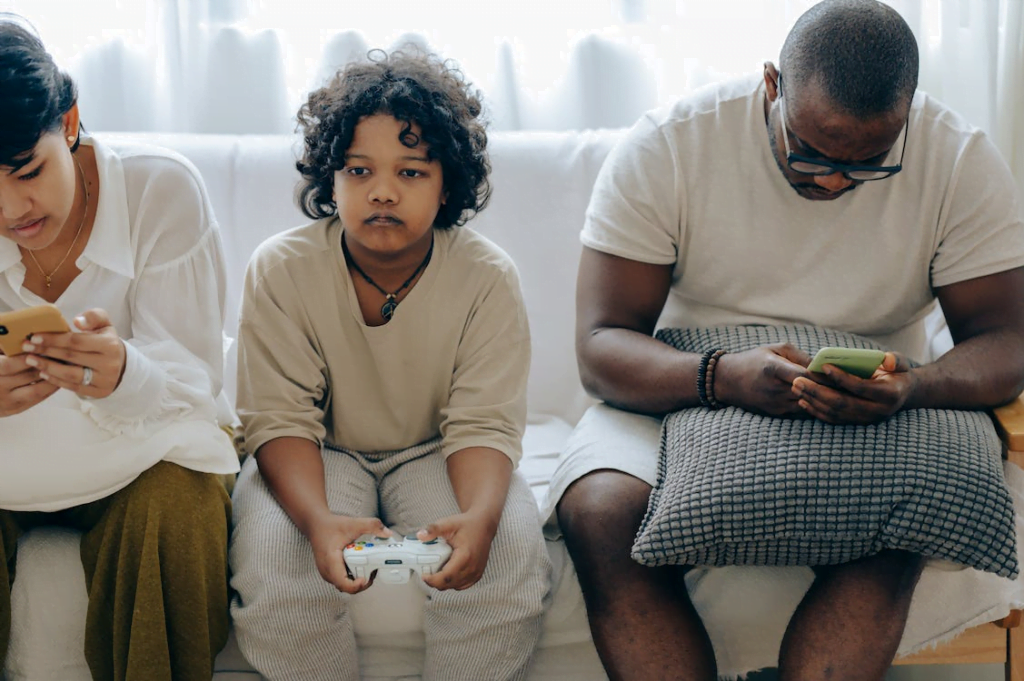Nomophobia, derived from the phrase “no-mobile-phone-phobia,” is the fear of being without a mobile phone or losing signal. Nomophobia has become a common affliction in today’s digital world, as cellphones have become a vital part of our life. According to a recent Indian poll, three out of every four persons suffer from nomophobia. This article investigates the causes and effects of nomophobia and gives some recommendations for dealing with this modern-day concern.
Causes of Nomophobia
There are several reasons of nomophobia. The following are some of the most prevalent causes of nomophobia:
- Dependence on Smartphones
Smartphones have evolved into an indispensable tool for communication, entertainment, and information collecting. They have improved the comfort and convenience of our lives. However, as people’s reliance on cellphones has grown, they have gotten more hooked to them, making it difficult to remain away from them. This reliance on smartphones might result in nomophobia.
- Social Media
Social media platforms have transformed the way we connect with one another. They give a platform for people to interact with others, express their ideas, and stay up to speed on current events and news. However, as social media has grown in popularity, people have become increasingly reliant on their cellphones to access these networks. Constantly checking messages and updating profiles might create anxiety and lead to nomophobia.
- Fear of Missing Out (FOMO)
Another source of nomophobia is the fear of missing out (FOMO). People may now easily keep up with the lives of their friends and acquaintances thanks to social media. This steady flood of notifications, though, might make individuals feel as if they are missing out on something vital. Anxiety caused by the fear of being left behind might contribute to nomophobia.
- Work-related Stress
Smartphones have enabled workers to stay connected to their job 24 hours a day, seven days a week. While this has resulted in higher productivity, it has also resulted in increased work-related stress. The continual impulse to check emails and texts might lead to anxiety and nomophobia.
Effects of Nomophobia
Nomophobia can have serious consequences for people’s mental and physical health. The following are some of the most prevalent consequences of nomophobia:
- Anxiety
One of the most typical side effects of nomophobia is anxiety. When people with nomophobia are separated from their cellphones or have no service, they may experience anxiety and worry. This can result in panic episodes, shortness of breath, and palpitations of the heart.
- Sleep Disorders
Smartphones produce blue light, which can disrupt the body’s natural sleep-wake cycle. This might result in sleep problems like insomnia, which can have serious consequences for a person’s mental and physical health.
- Relationship Problems
Personal connections might also suffer as a result of nomophobia. Nomophobic individuals may become distracted by their cellphones and fail to interact with their spouses, family members, and friends. Misunderstandings, conflicts, and even breakups can result from this.
- Decreased Productivity
Nomophobia can also cause a drop in productivity. Nomophobic individuals may become distracted by their cellphones and unable to focus on their work or study. This might lead to a drop in performance and production.
How to Deal with Nomophobia
Here are some suggestions on how to deal with nomophobia:
- Set Boundaries
Setting limits is critical to conquering nomophobia. People should strive to restrict their smartphone usage and designate specified periods of the day when they will check their phones. This will assist to eliminate the need to constantly monitor messages and updates.
- Practice Mindfulness
Another method for dealing with nomophobia is to practise mindfulness. People should aim to be in the present moment and avoid being distracted by their devices. They can do this by focusing on their breathing, engaging in physical activity, or spending time in nature.
- Seek Professional Help
If nomophobia is affecting a person’s mental and physical health, obtaining expert treatment is advised. A therapist can offer advice and help on how to overcome nomophobia and manage anxiety.
- Use Digital Detoxes
Digital detoxes can also help people overcome their fear of being alone. This entails disconnecting from cellphones and other digital devices for a defined length of time, such as a day or a weekend. This can assist people in resetting their connection with technology and reducing their reliance on cellphones.
- Find Alternative Activities
Another strategy to deal with nomophobia is to engage in other hobbies. People may spend less time checking their cellphones and more time doing things they like, such as reading, drawing, or spending time with friends and family.
Conclusion
Nomophobia is a widespread disease in today’s digital world, afflicting three out of every four Indians. Nomophobia is caused by a variety of factors, including smartphone reliance, social media, FOMO, and work-related stress. Anxiety, sleep issues, interpersonal troubles, and poor productivity can all be symptoms of nomophobia. Setting limits, practising mindfulness, getting professional treatment, employing digital detoxes, and finding other hobbies are all strategies to deal with nomophobia. People can enhance their mental and physical health and live a more balanced and satisfying life by taking measures to overcome nomophobia.


